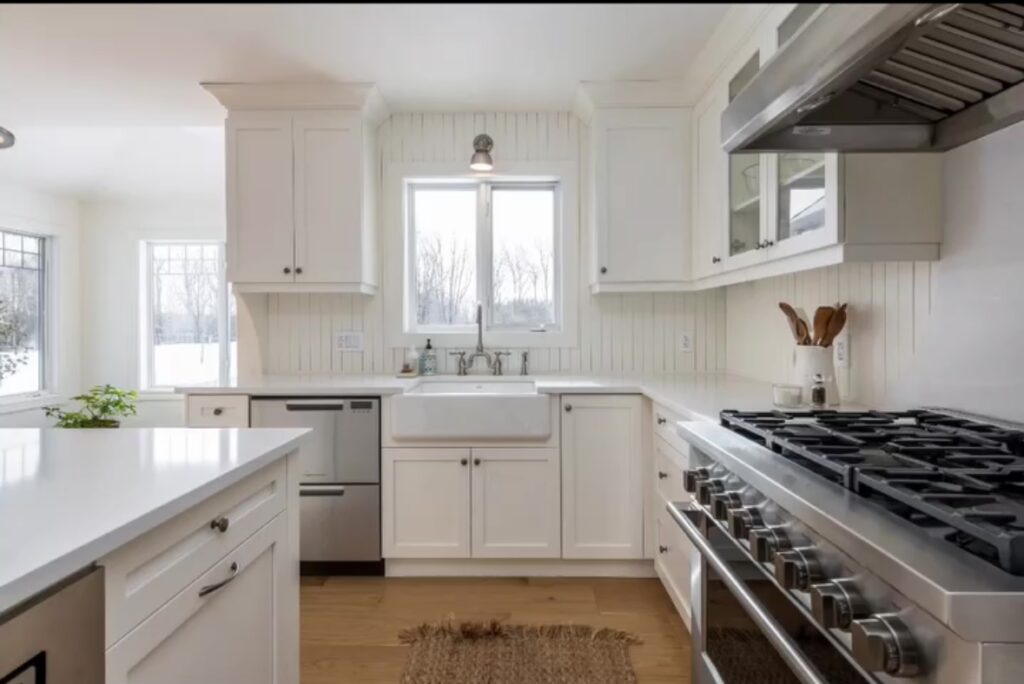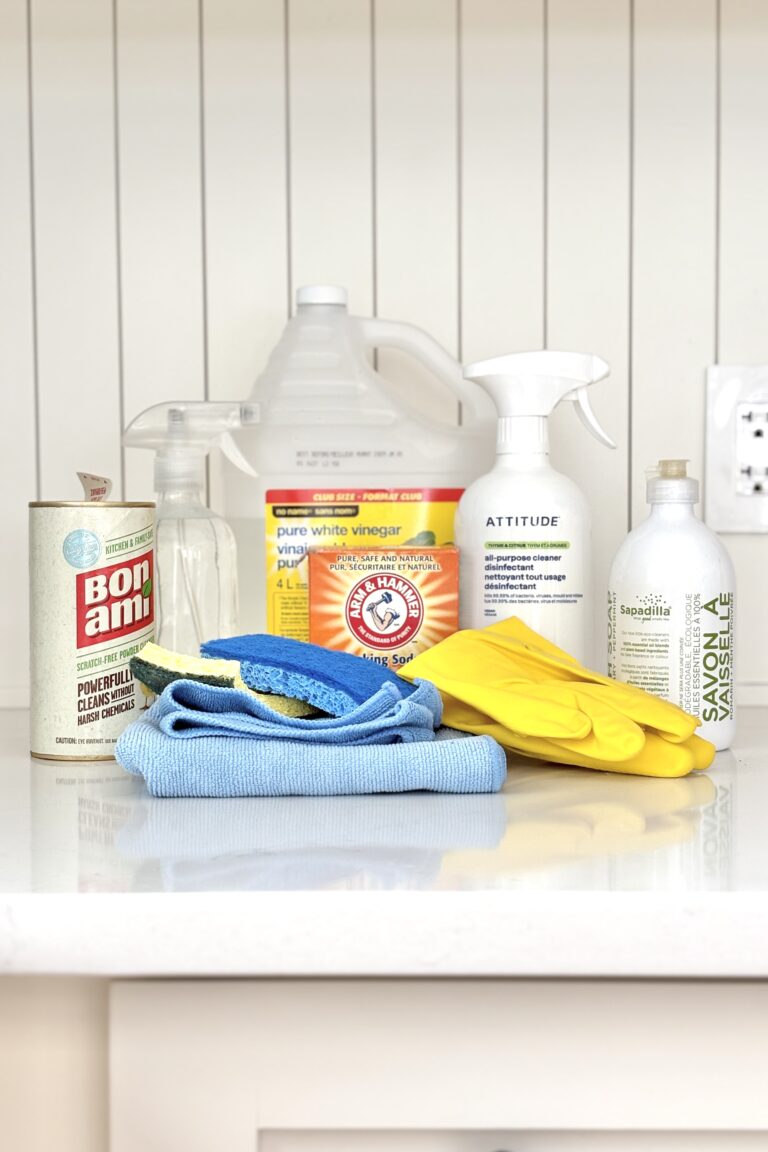Complete Guide to Kitchen Countertop Care: How to Maintain Different Materials for Longevity
Complete Guide to Kitchen Countertop Care: How to Maintain Different Materials for Longevity

Kitchen countertops are a central part of any kitchen, not just for their functionality but for their aesthetic appeal as well. The key to maintaining their beauty and durability is proper care, which can vary depending on the material. Whether you have butcher block, granite, marble, or engineered stone, following these simple maintenance tips will ensure your countertops last for years to come.
General Care Tips for All Countertop Materials
Regardless of the material, there are some universal countertop care guidelines to follow:
- Avoid Cutting Directly on the Surface
Always use cutting boards. Even the most durable materials can become scratched over time when knives are used directly on them. - Protect From Heat
Never place hot pots or pans directly on your countertops, even if they’re heat-resistant. Burn marks are permanent. Always use trivets or heat pads. - Clean Spills Promptly
Wipe up spills immediately to prevent staining or damage. The faster you clean up, the better chance you have at removing the stain. - Don’t Tenderize Meat on the Counter
Pounding meat with a mallet can cause scratches or cracks in the countertop, especially on softer surfaces like laminate. - Avoid Abrasive Cleaners
Stay away from harsh powders or steel wool pads, as these can scratch almost any surface. Use mild cleaners such as Bon Ami with a soft nylon pad, and avoid abrasive scouring products altogether.
Butcher Block Countertops
Material Overview
Butcher block countertops are typically made from maple or oak. They are loved for their warm, natural appearance but require consistent maintenance to stay in top condition.
How to Clean:
- Wipe down with a damp cloth and mild dishwashing liquid.
- For stains, a damp cloth with vinegar or lemon juice may help lighten the stain.
Pros:
- Easy to maintain.
- Can be sanded and reoiled to restore its appearance.
Cons:
- Prone to water damage and staining.
- Requires regular oiling or sealing.
- Can burn easily and absorb odors.
Maintenance:
- Reapply food-grade mineral oil once a month or when the wood looks dry.
- To oil: Place a bottle of mineral oil in hot (not boiling) water. Rub the oil generously onto the surface with a soft cloth, always working with the wood grain.
Repair:
- Minor scratches or stains can be sanded away with fine-grit sandpaper (220 for stains, 400 for smoothing). After sanding, reapply oil or polyurethane to finish.
Concrete Countertops
Material Overview
Concrete countertops are trendy for their industrial look and customizability. Available in various colors, they can even be molded into unique shapes, including integrated sinks.
How to Clean:
- Wipe with a damp cloth and mild dishwashing liquid.
- Clean spills immediately to prevent staining.
Pros:
- Heat and scratch resistant.
- Customizable in color and design.
- Durable with proper sealing.
Cons:
- Expensive and heavy.
- Cracking is common.
- Very porous, requiring regular sealing.
Maintenance:
- Reapply sealer when water no longer beads up on the surface.
- Food-safe paste wax can add an additional layer of protection.
Repair:
- Hairline cracks are part of the natural aging process.
- Small chips may be repairable, but larger damage may require professional repair or replacement.
Engineered Stone Countertops (Quartz)
Material Overview
Engineered stone is a composite material made of quartz particles, resin, and pigments. It is non-porous, scratch-resistant, and available in a variety of colors.
How to Clean:
- Wipe with a damp cloth and mild dishwashing liquid.
Pros:
- Non-porous, resistant to stains, heat, and scratches.
- Requires no sealing.
Cons:
- Expensive.
- Less natural appearance compared to marble or granite.
Maintenance:
- No regular maintenance is required.
Repair:
- Any damage needs to be professionally repaired.
Granite Countertops
Material Overview
Granite is a natural stone made from volcanic rock. It is known for its unique, speckled appearance and durability.
How to Clean:
- Dust regularly with a soft cloth.
- Clean with a damp cloth and pH-neutral cleaner formulated for stone.
Pros:
- Heat-resistant.
- Unique appearance with varied patterns.
Cons:
- Expensive.
- Requires periodic sealing.
- Can crack or stain.
Maintenance:
- Seal when water no longer beads up on the surface.
- Polish with a commercial stone polish if it appears dull.
Repair:
- Deeper stains or erosion need to be addressed by a professional stone fabricator.
Marble Countertops
Material Overview
Marble is softer and more porous than granite, making it prone to scratches and staining. However, it offers an elegant look, especially for pastry and dough preparation.
How to Clean:
- Dust regularly with a soft cloth.
- Clean with a mild dishwashing liquid and warm water.
Pros:
- Ideal for pastry work, as it doesn’t conduct heat.
Cons:
- Expensive and requires regular sealing.
- Easily scratched and stained.
Maintenance:
- Reapply sealer as needed.
- Protect from acidic substances such as lemon, vinegar, and tomato.
Repair:
- For stains or scratches, a poultice treatment may help. Severe damage requires professional restoration.
Plastic Laminate Countertops
Material Overview
Plastic laminate is an affordable option made of layers of kraft paper fused with resin. It’s commonly used for its low cost and easy maintenance.
How to Clean:
- Wipe with a clean cloth and mild dishwashing liquid.
- Use a paste of baking soda and water for stubborn stains.
Pros:
- Inexpensive and easy to clean.
- Resists scuffs and burns.
Cons:
- Not stain or scratch-proof.
- Seams can show, and damage can be difficult to repair.
Maintenance:
- None required, though periodic cleaning is a must.
Repair:
- Superficial scratches can be fixed with laminate repair paste. If the laminate lifts, reattach with concrete cement.
Soapstone Countertops
Material Overview
Soapstone is a mineral-based material composed of talc, quartz, and other minerals. It’s known for its smooth feel and resistance to acids.
How to Clean:
- Wipe with a damp cloth and mild dishwashing liquid.
Pros:
- Resistant to acids and stains.
- Soft, smooth texture with a unique aging process.
Cons:
- Expensive and requires regular maintenance.
- Prone to cracking and scratching.
Maintenance:
- Apply mineral oil regularly to maintain the deep color.
- Reapply every 6 months after the first year.
Repair:
- Small scratches can be removed with fine sandpaper or rubbing with mineral oil.
- Cracks typically require countertop replacement.
Stainless Steel Countertops
Material Overview
Stainless steel is known for its durability, heat resistance, and sleek, modern appearance. It’s commonly found in commercial kitchens but works well in residential settings too.
How to Clean:
- Wipe with a microfiber cloth and mild dishwashing liquid.
- Use abrasive powders like Bon Ami for more stubborn marks.
- Buff after cleaning to maintain shine.
Pros:
- Resistant to rust, corrosion, and stains.
- Heat-resistant and easy to maintain.
Cons:
- Expensive.
- Prone to scratching and denting.
- May show fingerprints and watermarks.
Maintenance:
- Clean with the grain to avoid scratches.
- Buff out minor scratches with a nylon abrasive pad.
Repair:
- Deep scratches or dents may require professional restoration.
Final Thoughts on Countertop Care
With proper care, your kitchen countertops can look beautiful and last for decades. By understanding the specific needs of each material, you can ensure your surfaces stay in top condition for years to come. Whether you have butcher block, granite, or stainless steel, a little maintenance goes a long way.
